Dear WesleyNexus Colleagues,
In John 14:6 Jesus declares that “I am the way, the truth and the life. No one comes to the Father except through me”. For two centuries, Western society was dominated by this Christian insight, though what it meant led to social conflict as often as peaceful community. Science, too, believes that there is truth which, if pursued with disciplined action and commitment to evidence, leads to an expansion of life-enhancing knowledge. Unfortunately, there is a frequently held belief that science and faith are incompatible, in conflict and need to be held at a distance and bifurcated into two domains. While there is some validity in this perception, the science and religion dialog has pursued the possibility that the two can be brought together in a process of dialectical engagement. Truth, or perhaps simply truths, about the world and reality are hard won and subject to adjustment as humanity learns more. All too often, proclamations by religious authorities over reason, evidence and experience diminish this process. Democratic institutions promote new knowledge in both faith and science by ensuring the right to the free flow of ideas, positions and policies within the body politic. Democracy is both precious and fragile.
This month WesleyNexus will focus on the challenge to our collective commitment to truth as highlighted by a recent article by Matthew Dowd who states that the “gravest threat to our country and the globe is the attacks on our fragile and frayed democracy combined with a major segment of our citizens and leaders who no longer consider telling the truth a fundamental value.” Science and faith are both threatened by the current disregard for truth telling and truth seeking. Reason, logic and dialectical engagement with others committed to truth may not lead to perfect knowledge but are absolutely necessary to advance mature understanding and character. They are also necessary to maintain our ailing democracy and ensure its continued flourishing.
Thanks go out to our generous contributors. We encourage you to share comments, articles and insights that will help us all weather these difficult times.
Rick, Jennifer, Maynard, and the rest of the WesleyNexus team
**********************************************
Truth and Democracy: The Dividing line in America today by Matthew Dowd
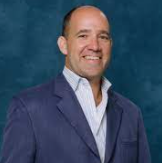
We are emerging from a global pandemic with still more to be done on this and many other health issues, we are beginning to see light out of a dark economy with much remaining to be tended to, and climate change represents a world crisis that still is not solved, but the most important issue facing America is not any of these. Today, the gravest threat to our country and the globe is the attacks on our fragile and frayed democracy combined with a major segment of our citizens and leaders who no longer consider telling the truth a fundamental value.
https://mdowd-97828.medium.com/truth-and-democracy-the-dividing-line-in-america-today-cfaad0aeaf75
******************************************************************
Democracy’s Decline by Maynard Moore (President, WesleyNexus, Inc.)
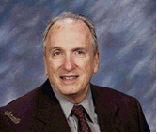
Recent headlines with a focus on the extended pandemic have brought worldwide attention to the crisis in India, as the hospitals have run out of oxygen and people are dying by the thousands as a devastating wave of Covid19 infections sweeps the countryside. As tragic as these deaths may be, the attention on the pandemic has tended to obscure the decline of democracy in a country that in recent years was a proud example of freedom coming out of a long history of colonial domination. As a consequence of India’s decline, less than 20 percent of the world’s population now lives in a “free” country, the smallest proportion since 1995. India is still considered an “electoral democracy” by Freedom House, which only highlights the extent to which many of the worst setbacks for freedom are taking place in ostensibly “democratic” countries. The category of “illiberal democracy” is decades old at this point, but it now appears to be becoming the dominant form of politics for much of the planet.
For the complete text, see https://wesnex.org/wp-content/uploads/2021/05/Democracy-decline-Final-1.pdf
******************************************************************
IRAS Star Island Conference

Sunday, June 27-Saturday, July 3, 2021
IRAS will go ahead with our conference, Naturalism — as Religion, within Religions, without Religions.
It will be another great conference, in a special year. We expect that the joy of an ‘in person’ conference, after a year full of online meetings, will be well worth it. And that in years to come, when we look back, this will shine in our memories as a special year, with a remarkable conference.
Registration, at www.iras.org, has opened on March 10, but due to “social distancing” requirements, registration slots have been cut in half this year. If you are interested in registering, don’t delay. For more information on the conference, see IRAS Conference 2021 on the website www.iras.org.
******************************************************************
IRAS Monthly Webinar Series
May 19, 2021 @ 4:00 PM CDT, 5:00 EDT, 2:00 PM PDT, 10:00 PM BST (and on demand shortly after) available on the IRAS website: www.iras.org.
The Human Mystery: Unraveling the Past, Exploring the Future
Presentation Overview: New discoveries in human origins research complicate the scientific interpretation of our past. Until recently, it was widely believed that our species, Homo sapiens, appeared in a unique form in East Africa around 150,000 years ago. Spreading throughout the world, this new “species” simply replaced all other human variants that they encountered. It was also generally believed that human culture appeared almost in a flash, a kind of “cultural big bang,” centered in Europe. Counter-evidence, whether newly discovered or reassessed through powerful new techniques, supports a major reinterpretation of the once-accepted “recent out of Africa” perspective and the accompanying “cultural big bang.” The new interpretation, however, is not without its problems. The new view undermines a Eurocentric view of culture, but it prompts puzzling questions about why cave art should appear at almost the same time in widely separated locations. The evidence for the Paleolithic interbreeding of various forms of humanity (Neandertals, Denisovans, and probably many others) presents a fundamentally new view of the hybrid nature of our species. At the same time, it reawakens old anxieties about our diversity and unity as a global species. Perhaps not as a coincidence, the new view of our past comes just as we acquire the technology to influence the future of human evolution by using advances in fields like genetics (gene editing). What do new interpretations of our origins mean for human beings living today at this pivotal moment in evolutionary history? What do they suggest about human unity in light of human variation? Can religious perspectives offer affirmations of human unity and inspire a hopeful human future?
Ron Cole-Turner teaches at Pittsburgh Theological Seminary, where he holds the H. Parker Sharp Chair in Theology and Ethics. For over thirty years, he has explored the impact of science and technology on religious perspectives (especially Christianity), with special attention to human evolution, past and future, including the expanding powers of technology to modify humanity, becoming “transhuman” or “posthuman.” Recent publications include Transhumanism and Transcendence: Christian Hope in an Age of Technological Enhancement (edited, 2011) and The End of Adam and Eve: Theology and the Science of Human Origins (2016). He is a founding member of the International Society for Science and Religion, serving now on the Executive Committee.
The IRAS webinar is FREE but registration is required
https://us02web.zoom.us/webinar/register/WN_Zf76EqQiSA2Ha6lcAvjFBQ
******************************************************************
The bodily resurrection of Jesus—say what?!
A sermon based on Luke 24: 36f, by Roger A. Willer
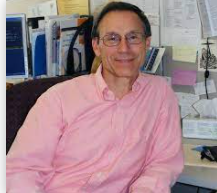
This is a homily preached April 24, 2021 to the Ecumenical Round Table for Faith, Science, and the Church. The Ecumenical Round Table for Faith, Science and the Church is an annual gathering of Christian individuals and denominational groups to share experiences, information and, where possible, material resources related to initiatives that promote scientific and technological issues in the lives of the churches. The 2021 gathering was conducted online and hosted by the Lutheran Alliance for Faith, Science, and Technology.
For the complete text of the sermon, see https://wesnex.org/wp-content/uploads/2021/05/May-21-Covalence-Commentary-Roger-Willer.pdf
******************************************************************
Science, pseudoscience, and tendentious science by George Murphy
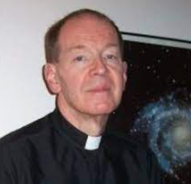
From Covalence, the Online Magazine of the Lutheran Alliance for Faith, Science and Technology
The Lutheran Alliance for Faith, Science, and Technology is dedicated to expanding awareness and promoting conversation about the implications of science and technology for Christian faith and life. (Prior to becoming the Alliance for Faith, Science and Technology in 2002, the effort was known as the Working Group for Faith, Science and Technology.)
https://luthscitech.org/science-pseudoscience-and-tendentious-science/
******************************************************************
Free CASIRAS webinar on the Anthropocene Age
Dr. David Grinspoon of the Planetary Science Institute
June 3 @ 5 PM CDT
For more information: https://www.casiras.org/2021/05/11/astrobiologist-david-grinspoon-to-present-casiras-lstc-webinar-june-3-may-11-2021/
Founded in 1972, CASIRAS is an independent society of scholars and scientists from various fields who pursue critical, interdisciplinary studies of possibilities for constructively relating religion and science.
https://www.casiras.org/2020/06/05/about-casiras/
******************************************************************
Thomas Jay Oord – Opening the Love of God
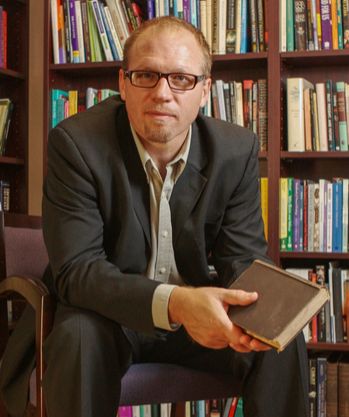
In a time of skepticism concerning religious belief, let’s talk about God and Love. Is it true that there really is a loving God, but that God does not know the future in advance? Is it true that God cannot control what happens in the world, but that God can indeed lure or guide the world into well-being if the world responds? Is it true that God shares in the experiences of each and all, as a fellow sufferer who understands? Is it true that God is Love: not human love, but rather a cosmic love within us and beyond us, everywhere at once, flowing from a personal being, beyond specific location, who listens to us, hears our prayers, and cares for us and all creatures, all of the time? Thomas Oord answers “yes” to all of these questions. The author of many books on God and love, and a talented photographer as well, he is a key leader in the “open and relational theology” movement. We spend an hour with him talking about his life, his work, his ideas, and his hopes for the future.
******************************************************************
The Spiritual Discipline of Skepticism by Jim Burklo
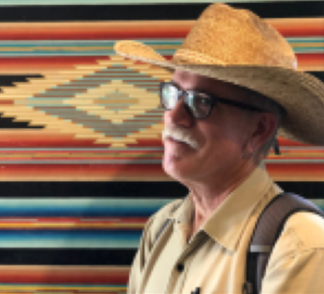
Science is the disciplined distrust of science.
Theories arise to explain phenomena, based on evidence. Scientists question the theories and the evidence, perhaps posing alternative theories. Over time, in this process of organized skepticism, a scientific consensus often emerges – a theory that works, at least for the time being – providing a scaffold for further scientific inquiry and progress. That progress may result in new evidence and insights that could undermine the consensus and lead to a new theory that accounts for a broader base of evidence, around which a new consensus can form.
In contrast to this process, disorganized skepticism of science is a mounting threat. Anti-vaxxers cling to disconnected shreds of evidence and discredited theories that confirm their convictions. The same applies to climate-change deniers. And to 6-day-creationists and “intelligent design” advocates.
These are literally unhealthy forms of skepticism. The healthy version is called science.
https://um-insight.net/perspectives/the-spiritual-discipline-of-skepticism/
JIM BURKLO IS THE SENIOR ASSOCIATE DEAN OF RELIGIOUS AND SPIRITUAL LIFE AT THE UNIVERSITY OF SOUTHERN CALIFORNIA. HE IS AN ORDAINED UNITED CHURCH OF CHRIST PASTOR AND IS THE AUTHOR OF SIX PUBLISHED BOOKS ON PROGRESSIVE CHRISTIANITY. HE IS AN HONORARY ADVISOR FOR PROGRESSIVECHRISTIANITY.ORG AND A MEMBER OF THE BOARD OF DIRECTORS OF PROGRESSIVECHRISTIANSUNITING.ORG.
******************************************************************
What do near-death experiences mean, and why do they fascinate us? by Alex Moshakis
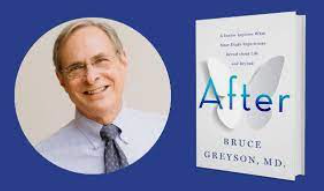
Psychiatrist Bruce Greyson has spent decades talking to people about near-death experiences. His work raises questions about what happens when we die, and how we ought to choose to live.
https://www.theguardian.com/society/2021/mar/07/the-space-between-life-and-death
******************************************************************
Why David Bentley Hart thinks choosing a tie reveals more about consciousness than near death experiences by Alex Tsakiris
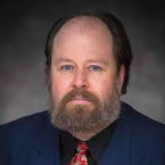
https://skeptiko.com/david-bentley-hart-on-consciousness-and-spirituality/
******************************************************************
Would Wesley Get a COVID-19 Vaccine? by Professor Peter J. Bellini
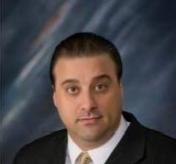
Theology and science are not necessarily mutually exclusive, and neither should one exclude or replace the other.
Yet not all “truths” address the same subject, have the same methodology or goals, or are equal in significance. I realize the truths in each respective domain speak to different areas of inquiry. The primary subject matter of theology is God, while the primary subject matter of science is the universe. Knowledge of the former comes by faith and brings eternal peace. Knowledge of the latter comes by reason and brings temporal certainty. In this sense, all truths are not equal nor have equal weight and significance. Although both science and theology mutually inform my life with the truth they impart from their respective domains, my faith in God ultimately guides my soul on its sojourn from earth to heaven. Nonetheless, an axial premise held tightly is that the work of God in creation and the operational laws of the physical universe are compatible and not at odds. Further, we need to be reminded that both so-called theological and scientific knowledge are mediated through sinful and fallible humanity and hence are to be handled humbly and critically.
******************************************************************
“But men love abstract reasoning and neat systematization so much that they think nothing of distorting the truth, closing their eyes and ears to contrary evidence to preserve their logical constructions”
Fyodor Dostoyevsky, Notes from Underground
